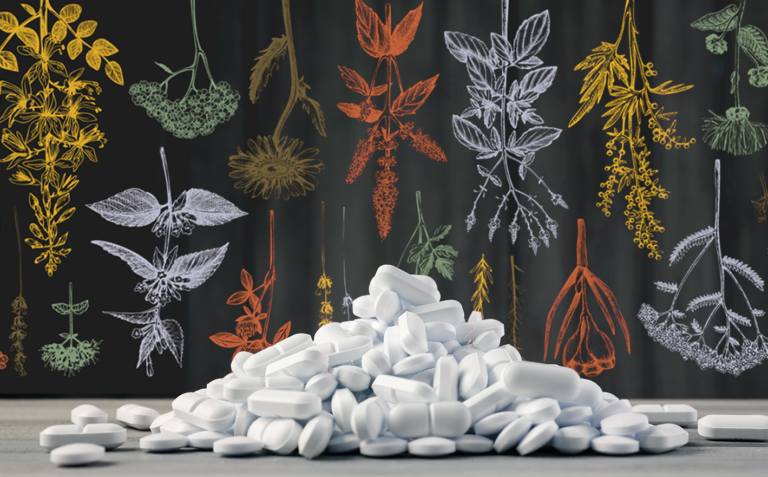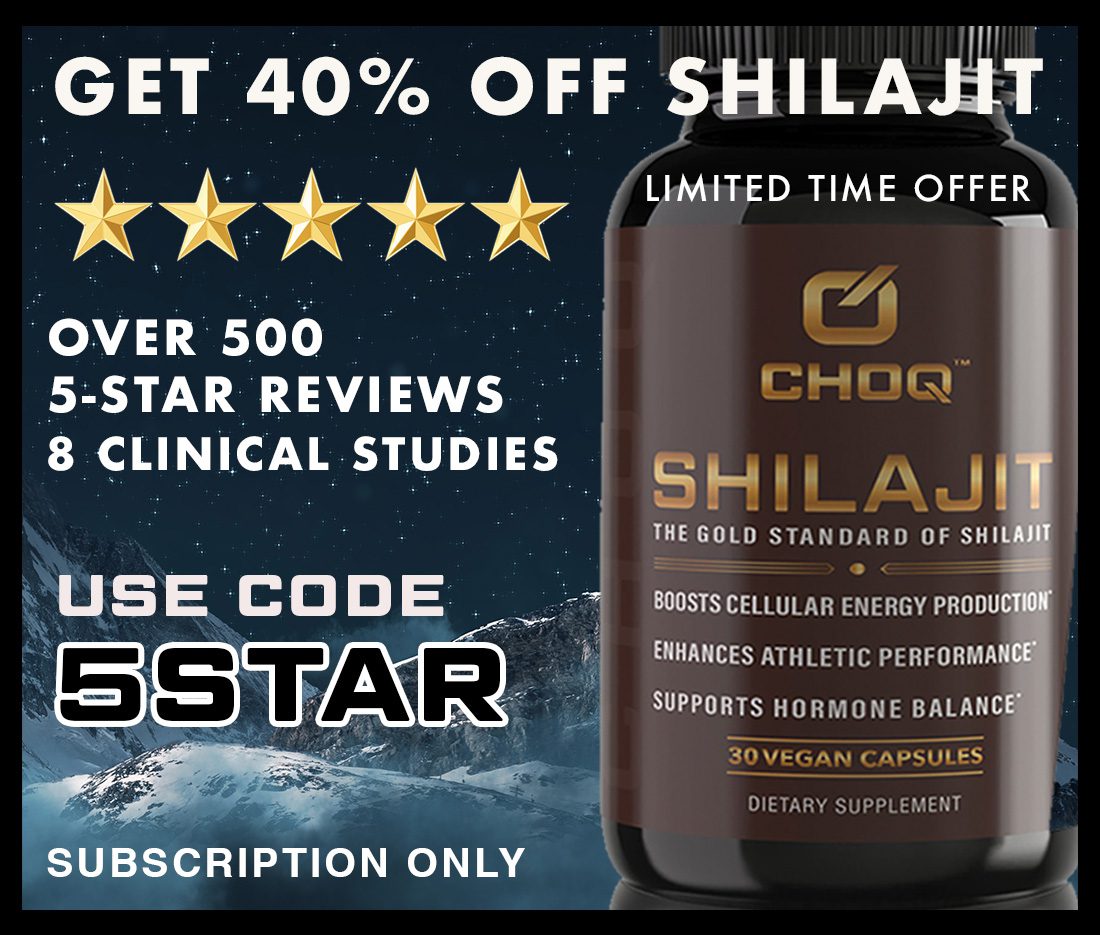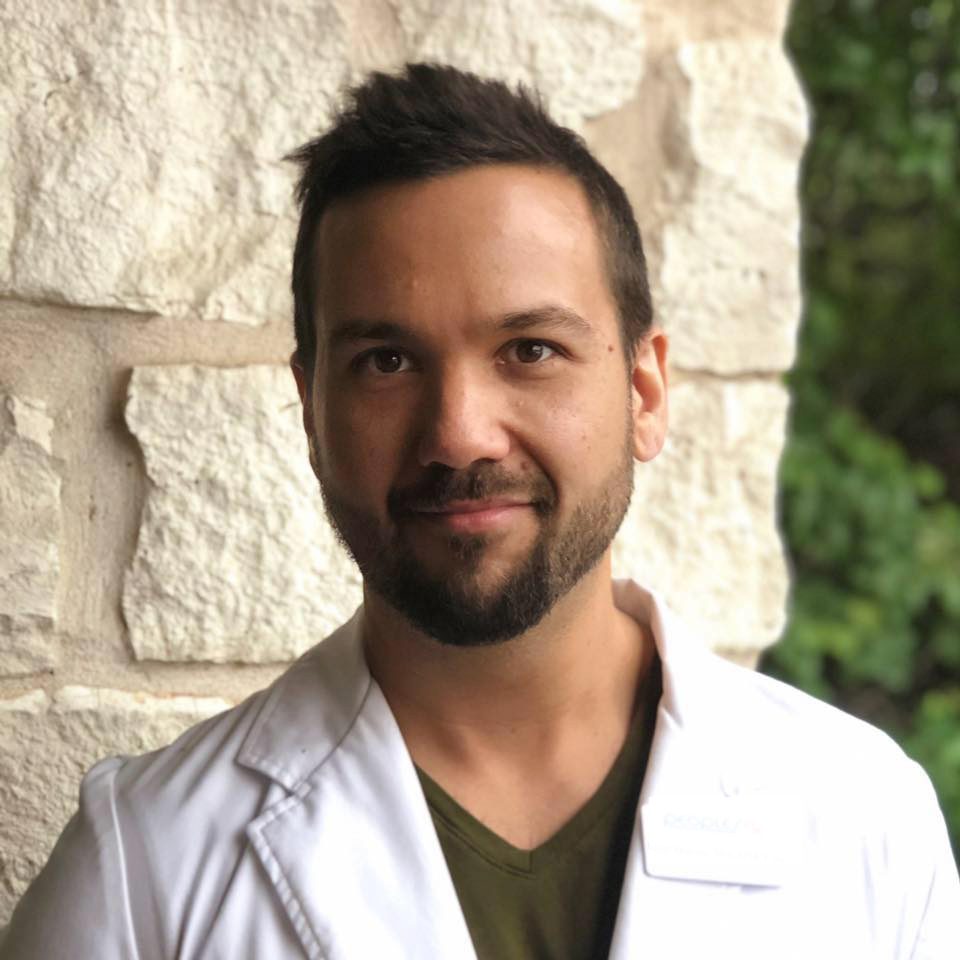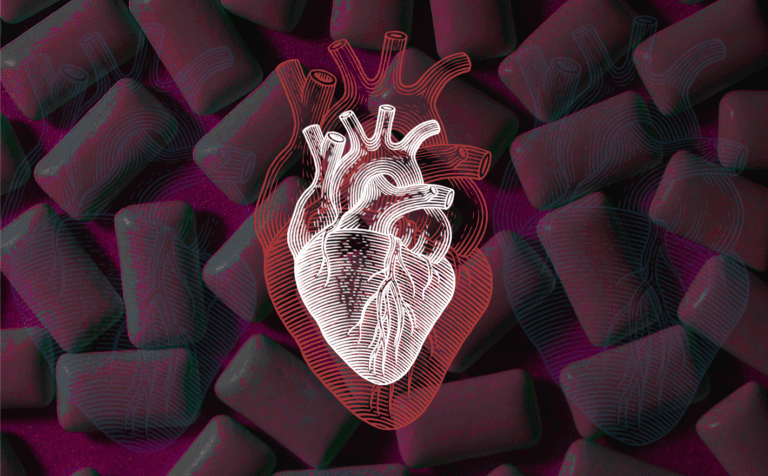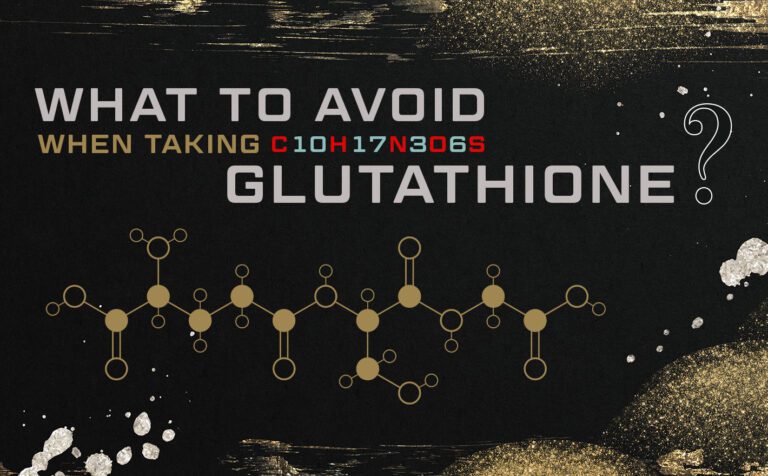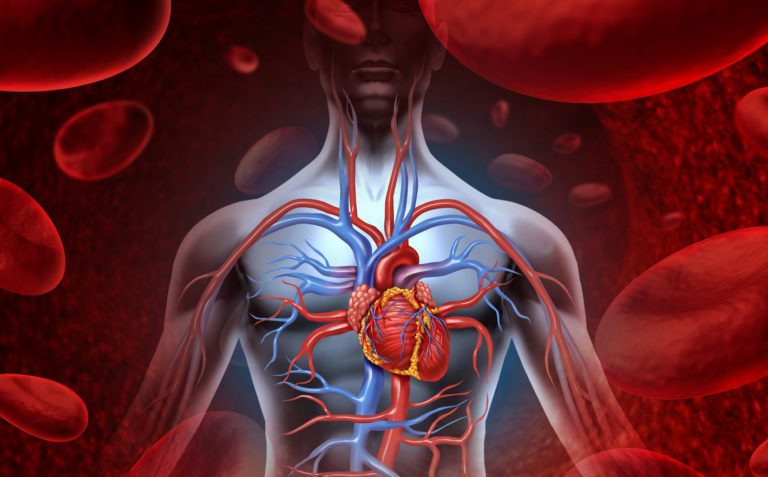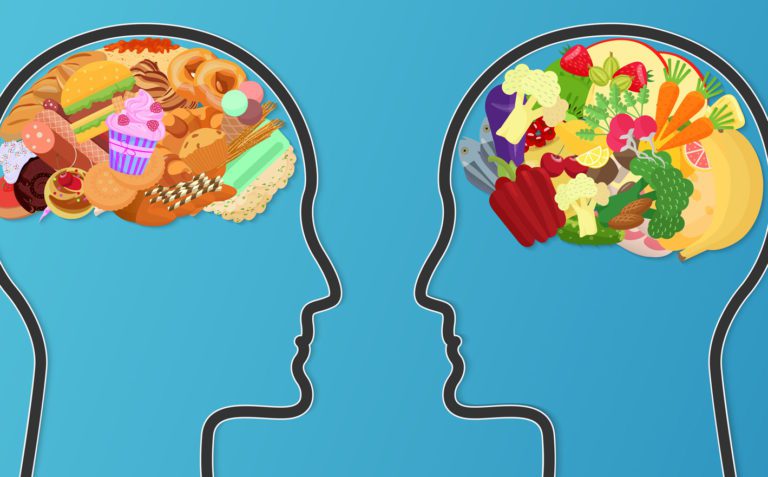Is food still medicine, just as it always has been?
Or are we now so thoroughly equipped by modern medicine to fight disease that we should dispossess ourselves of such an ancient idea?
I once happened upon an article written by an Australian surgeon named Dr. Nikki Stamp titled, “Food is Not Medicine, and You Should Never Confuse the Two“. Within seconds of reading it, I was powerfully compelled to construct a detailed rebuttal.
Unfortunately, shortly after my article was originally published, Dr. Stamp’s article was taken down, so you won’t be able to read it.
If you’d like a taste of her penchant for anti-nutrition hit pieces, you can check out “Robert chose the pill-free route; he ended up on my operating table.”
Although her original article is no longer available, this rebuttal stands on its own as a detailed investigation into the anti-holistic-medicine propaganda machine, and the numerous fallacies which it operates under.
Next time you’re talking to someone who is patently against holistic medicine, you’ll be better equipped to handle your own.
A summary of my critiques of Dr. Stamp’s article:
1. Dr. Stamp has ignored clear examples of food being used as treatments for known diseases–examples which are uncontroversial even in her own profession–in an effort to emphatically declare that food and medicine are completely different in all cases.
2. Dr. Stamp has conflated medicinal herbs with foods, generating confusion as to which categories of natural substances she’s attempting to claim are medically inert.
3. Dr. Stamp overestimates the effect size of many allopathic treatments in comparison to herbal and nutritional therapies, particularly when these natural therapies are used in combination as coherent protocols.
4. Dr. Stamp’s use of the word “cure” implies that modern medicine is able to cure most diseases with its treatments, which it is not.
5. Dr. Stamp incorrectly defines food as merely “fuel”, which overlooks the reality that the majority of compounds in foods (by category) are non-caloric, including vitamins, minerals, fiber, and non-nutritive, pharmacologically active phytochemicals and hormones. None of these compounds can be converted into energy (ATP), although they have wide-ranging physiological effects that are the subject of tens of thousands of clinical trials across the world.
6. Dr. Stamp claims that seeing food as anything other than “the stuff we need to stay alive” is unhealthy, and that perceiving food as potentially medicinal moralizes health and makes people feel overly responsible for their disease, which implies that diet and lifestyle choices are of little import medically, something which defies both common sense and medical research and disempowers patients by downplaying the power of their lifestyle choices to treat and prevent disease.
Ok, now let’s get into it. Just as she did, I’ll start with definitions.
Food (noun):
Dr. Stamp: “something that people and animals eat, or plants absorb, to keep them alive”
Dictionary.com: “any nourishing substance that is eaten, drunk, or otherwise taken into the body to sustain life, provide energy, promote growth, etc.”
Note: this is a BIG “etc.” As we’ve established, food is a combination of caloric nutrients which can be converted into energy (ATP), as well as fiber, vitamins, minerals, hormones, and phytochemicals, all of which exert pharmacological effects on every system in the body.
Medicine (noun):
Dr. Stamp: “a substance, especially in the form of a liquid or pill that is a treatment for illness or injury”
Dictionary.com: “any substance or substances used in treating disease or illness; medicament; remedy”
Medicine, by definition, treats or prevents disease, and is typically taken specifically for that purpose. The primary purpose of food, however, is to sustain life, provide energy, and promote growth.
Food is something that must be consumed on a regular basis in order to continue living. It is the biological substrate from which we derive all of our tissues.
Unlike medicine, food is not optional if we desire to live. It also contains calories, and not merely non-nutritive bioactive chemical compounds, like medicine. We don’t typically get sustenance from medicine. Instead, we use it to chemically manipulate our biological machinery. As mentioned, however, the differences start to break down when we begin to delve into the research, especially on the chemical components of food which are non-nutritive.
Another area in which food often differs from medicine is that it has the capacity to create disease (although clearly pharmaceuticals also have the capacity to do this as well, but the intent is ostensibly to heal, and thus they are often considered medicine even if evidence to the contrary demonstrates they are not).
In the case of people with celiac disease, for example, wheat would be considered a poison, in that it is directly creating disease in their bodies.
So, at the very least, we can conclude that in some cases, the removal of particular kinds of toxic foods can be medicinal. Therefore, one tool that a practitioner has in his or her medical toolbox is the removal of foods which promote imbalances.
But when is food truly a medicine in the strictest sense of the word?
Let’s start with the most obvious examples. Vitamin deficiencies are considered diseases. They all have ICD-10 codes and are real clinical entities, with sometimes severe, crippling symptoms, including death.
Citrus fruits were the original medicine used to treat scurvy. The typical treatment for scurvy in the modern era is 1,000 – 2,000 mg of supplemental vitamin C for three days, followed by 100 mg per day for up to 3 months. It would take over 10 oranges per day to achieve that initial loading dose, but the point remains: oranges are something which can be used to treat disease.
And, as an aside, the early research of the antiscorbutic properties of food by Dr. James Lind demonstrated effects with only two oranges and one lemon per day.
So one way of putting it is that—to the average person—oranges and lemons are merely foods, but to someone with late-stage scurvy, they are medicines in the strictest sense of the word.
So, in this particular example, two oranges and a lemon were not only a powerful medicine for a major disease at the time. They were the only treatment for such a disease.
Despite the fact that we now have ascorbic acid as a molecular isolate, and can provide it directly to those who are deficient, vitamin C containing foods will always be a medicine that can cure the disease of scurvy, just as thiamine-containing foods can cure the disease called Beriberi, niacin-containing foods can cure Pellagra, and folate-containing foods can prevent birth defects.
The idea that food can cure nutrient deficiencies is not controversial. The idea that nutrient deficiencies can cause diseases is not controversial. What should be controversial, however, is the dubious notion that food is not medicine.
By making this statement, Dr. Stamp seems to be indicating that food and medicine are categorically exclusive without exception, demonstrating an exaggerated position that sounds more dogmatic than pragmatic.
So, aside from scurvy, can vitamin C (and therefore vitamin C containing foods, in principle) be considered a medicine to treat other diseases as well?
Since Dr. Stamp is a cardiothoracic surgeon, it might be edifying for us to dive into the evidence regarding how vitamin C can affect the cardiovascular system.
Vitamin C has been demonstrated in a randomized, placebo-controlled trial to reduce oxidative stress markers and improve microcirculatory perfusion in patients undergoing coronary angioplasty.
It also reduces LDL oxidation, rendering this form of “bad” cholesterol less harmful. In fact, it’s the oxidized LDL that contributes the most to atherosclerotic plaques through the formation of foam cells and the gradual decline of endothelial function.
Another study showed that plasma vitamin C was inversely related to blood pressure. This meta-analysis of 29 clinical trials demonstrated that vitamin C supplementation does in fact modestly decrease blood pressure.
It may also be of interest to any heart surgeon that vitamin C is depleted during cardiac surgery. Interestingly, ICU patients with low vitamin C levels have an increased risk of mortality and multiple organ dysfunction according to this study.
Deficiencies may go unnoticed because the lab equipment required to measure plasma vitamin C is costly and not always available in hospitals, say the paper’s authors. Why is the laboratory assay to measure serum ascorbate unavailable in so many hospitals?
In fact, many observational studies show an inverse association between vitamin C intake and the risk of heart disease, according to the Oregon State University Micronutrient Information Center.
So, could oranges and lemons actually prevent the deaths of people who are at a high risk of cardiovascular disease? Perhaps, but this study has yet to be done as a clinical trial, and who would have the money to fund it anyway?
Can statin drugs do this? Surely, since total sales of these drugs is estimated to reach $1 trillion dollars in 2020, statins must be able to save some lives, right?
Actually, according to this meta-analysis of over 65,000 participants, the answer is: no, statins do not prevent overall mortality.
In fact, 104 patients had to be treated in order to prevent a single heart attack over a 5 year period, while 10% of patients had documented muscle damage as a result of the drugs’ deleterious effects on CoQ10 synthesis and mitochondrial function. In other words, for the patients in this study, it was 10 times more likely to receive muscle damage than to be saved from a heart attack.
In fact, statin drugs likely worsen heart failure due to their mitochondrial toxicity, according to this paper.
Let’s also talk a bit about Dr. Stamp’s comments regarding the cardiovascular benefits of turmeric. She begins her article with the following anecdote:
“…a patient I was seeing for heart surgery was keen to avoid the surgeons’ knife in favour of turmeric, which the Internet told him would ‘unclog’ his arteries. As much as I’d love to help him avoid major surgery, turmeric is not the answer.”
Dr. Stamp picked a rather unfortunate example in order to state her case, because turmeric—although commonly used in food—is actually a medicinal herb, and not really a food by her definition.
While culinary and medicinal herbs like turmeric do have calories (approximately 30 calories per tablespoon in this case), that’s never been the reason that people have consumed it.
People don’t use herbs and spices for “fuel”, Dr. Stamp.
They use them because of their flavor, antioxidant, and well-established medicinal properties.
Turmeric contains a group of unique non-nutritive phytochemicals, such as curcuminoids and turmerones, which have an array of pharmacological effects on the body which have been studied extensively.
A simple PubMed search for “turmeric” yields over 5,000 studies.
Is it possible that Dr. Stamp’s patient, who wished to “unclog his arteries”, was referring to this meta-analysis, in which turmeric was demonstrated to lower LDL?
Turmeric’s effects on cholesterol are smaller than a Statin drug, but does that mean that it’s not a medicine?
Aside from the fact that lowering cholesterol with drugs has an insignificant effect on heart attacks anyway, isn’t a “weaker” medicine still a medicine? This is a quantitative difference, not a qualitative one.
As long as we’re talking quantitative lipidological effects of medicinal phytochemicals (or “foods” as Dr. Stamp prefers to call them), a mere quarter teaspoon daily of black cumin seed (Nigella Sativa) was demonstrated by this study to lower LDL by an average of 27% in just two months.
By comparison, a moderate-intensity statin drug would be expected to lower LDL by 30-50%.
Black cumin seed is very much in the neighborhood of pharmaceutical potency when it comes to lowering LDL, and has the added benefit of not causing muscle problems or worsening diabetes. The odds that your cardiologist would recommend it, however, are extremely low.
Is there a middle path here, in which the man in Dr. Stamp’s office can still receive surgery when only absolutely necessary, drugs when only absolutely necessary, and be referred to a qualified practitioner who is trained in the proper use of clinical nutrition, orthomolecular medicine, herbology, and lifestyle medicine so that he may receive the best evidence-based, integrative approach to “unclogging” his arteries and preventing cardiovascular disease?
Is it possible that Dr. Stamp could have—had she had the proper training—commented intelligently on which dietary protocols and phytochemicals are most capable of treating cardiovascular disease from the standpoint of evidence-based medicine, instead of giving a predictably black-and-white, propagandistic answer?
In the coming decades, it will become totally inexcusable for physicians to be so woefully ignorant of herbology and natural medicine in general. The patients of the future simply won’t tolerate it and will take their business elsewhere.
Just like in the United States, physicians in Australia are not trained in clinical nutrition—much less medical herbology—so it’s not surprising that she was unable to speak with this patient in an empirical, reasoned manner about the effects that turmeric has on lipids, inflammation, and cardiovascular function.
The art of prescribing diet, nutritional supplements, and medicinal herbs in the right combinations to treat disease is not a practice which is understood or respected as a true science by most practitioners of Traditional Western Medicine, as it is not part of their cultural inheritance and is often looked upon with a blend of disdain and confusion.
Australia’s Deakin University claims that the country’s physicians are “ill equipped to identify and appropriately manage nutritional issues of patients” and that “the most common cause for insufficient nutritional practice is lack of nutritional knowledge.”
Further demonstrating her covert belief in allopathic supremacy, Dr. Stamp goes on to say:
“Can food make you healthier? Absolutely. Saying it can cure though is pretty misleading.”
But as an incisive counterpoint, I might ask Dr. Stamp: How often do prescription drugs cure people?
For example, when patients are guided to permanently modulate their serotonin reuptake for the rest of their life using an expensive patented chemical, can this truly be considered a cure for depression, especially given that these drugs create a powerful dependency over time and can lead to the chronification of the disease?
If a natural compound such as turmeric had demonstrated antidepressant activity, would it not be a safer route for some?
Since the effect size of some of these nutrients and phytochemicals is relatively small, then what would happen if one were to stack 8 or 10 of them together as part of an elegant, customized protocol, such as those developed by naturopaths, herbalists, clinical nutritionists, and other natural medicine practitioners across the world?
Wouldn’t a diet and lifestyle-based approach to preventing coronary heart disease, such as the one utilized by Dr. Dean Ornish’s Lifestyle Heart Trial, in which patients reduced their LDL by 40% (similar effect to a statin), angina by 90%, and drastically improved their arterial blood flow, be considered more of a cure than simply taking drugs which manually lower cholesterol synthesis–or block adrenaline receptors–for the rest of one’s life, all the while allowing the etiological factors to remain in the shadows unaddressed?
I would ask Dr. Stamp: just who is the snake oil salesman in this particular scenario? Ornish, or Pfizer? The man getting people to eat extremely nourishing foods, exercise, and reduce stress, or the $50 billion dollar drug company with a rap sheet a mile long?
Were Dr. Ornish’s patients at risk of believing that their diseases were the result of “moral failing”?
Did having to come to terms with the direct causal link between their dietary choices, exercise habits, and stress make them feel bad? Perhaps, but at least they were empowered by their doctor, instead of being disempowered by a belief created by those who would fight a war on common sense.
As side effects go, most patients would pick a little extra guilt for their poor diet and lifestyle choices over diabetes and myopathy any day of the week.
Even if a person’s disease is not caused directly by poor nutrition, superb nutrition can clearly help to treat it, and thus there is still a causal link between dietary choices and disease outcomes.
I do agree that it’s extremely important that patients don’t beat themselves up for being sick, and that guilt and shame are highly unproductive if not poisonous emotions, but that it’s actually much more destructive to infantilize our patients and shield them from information which we think they cannot handle.
Dr. Stamp says that “food is food and medicine is medicine”. Yes, sometimes food is food. And sometimes medicine is medicine.
But sometimes food is medicine, and sometimes conventional “medicine”–well–isn’t really all that medicinal. Sometimes it’s downright harmful.
Any medical culture which routinely downplays the role that diet and lifestyle have in healing is foundationally toxic and should be looked upon with great skepticism.
Is it possible that Dr. Stamp and I are both biased? Yes, absolutely. We’re all biased, even the most hard-nosed physicists and chemists are biased because we’re all human. We’re bias-making machines. Our worldviews are culturally mediated. It’s important for us to admit that. We’re all doing our best with the software we’ve been programmed with.
Science is far from the perfectly objective, empirical practice some might think it is.
Aside from the most well-known forms of scientific bias, such as selection bias, design bias, etc., we also have hidden cultural and economic biases that are even deeper and thus more invisible to us.
For example, black seed oil will never be approved as a drug to treat high cholesterol because it’s not patentable and therefore nobody will throw billions of dollars into research and development to run all the phases of clinical trials.
There are countless studies demonstrating how we can treat and prevent some of the worst diseases on the planet with diet and lifestyle changes, but most modern physicians are unaware of them. It’s simply not part of their medical worldview.
The economic system which engages with allopathic medicine in order to perpetually bias it towards only treatments which are patentable hides behind the false aegis that the natural treatments (which are their direct competition) simply don’t have enough research behind them.
The worldview that this economic and medical system comes from (called the “modern” or “orange” meme code, by Integralists and proponents of Spiral Dynamics) does not particularly care about non-toxic living, or Gaia in general for that matter. It self-servingly believes itself to have a monopoly on science.
It’s clear that the future of medicine is total holistic and allopathic integration. It’s time to take the best of all available modalities and harmonize them, to the benefit of the patients. Some of the finest minds in medicine are currently working on this. These are exciting times.
There is a sensible middle path, in which pharmaceuticals, surgery, clinical nutrition, chiropractic, acupuncture, massage, homeopathy, herbology, energy medicine, nature therapy, psychotherapy, and lifestyle medicine are all potentially a critical part of the picture for every patient, and can be used together in a cooperative rather than antagonistic model, but it may take us a few decades to get there.
In the future, treatment plans for chronic disease will start with the least invasive, gentlest modalities first, then progress to more heavy-handed therapies only if they are truly required.
There will come a time when all the medical cultures will set aside their differences and biases to the best of their abilities and truly work together, elevating the scientific and ethical landscape to new heights, to the benefit of humanity. In this future, evidence-based clinical nutrition will inevitably rise to the forefront of medicine, where it belongs.
Food has always been–and always will be–medicine, and we should never confuse dogma with science.
